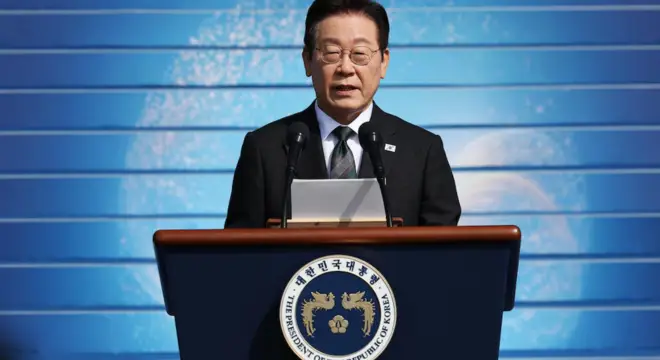Have you ever wondered how thousands of South Korean children ended up growing up in foreign families, far from the country of their birth? What systems allowed such large-scale adoptions to take place, often without transparency or safeguards? And how did these practices impact the lives of the children, their birth families, and even the adoptive families abroad? Finally, what responsibility does a government hold when decades of policies caused emotional trauma for so many?
For decades after the Korean War, South Korea facilitated foreign adoption programs that sent tens of thousands of children to countries like the United States, Australia, and Europe. Initially, these programs were viewed as solutions to post-war social challenges: addressing poverty, orphanhood, and the stigma surrounding mixed-race children. However, over time, it became clear that these adoptions were rife with abuses, including falsification of records, illegal removal of children from birth families, and misrepresentation of children as abandoned or orphaned.
In October 2025, South Korean President Lee Jae-myung issued a historic apology via Facebook, acknowledging the “anxiety, pain, and confusion” caused to the thousands of South Koreans adopted abroad, as well as to their birth and adoptive families. This apology followed a landmark investigation by the Truth and Reconciliation Commission, which confirmed that the state bore responsibility for the flawed adoption programs.
Let’s explore the origins, abuses, and long-term impacts of South Korea’s foreign adoption programs, and how the country is now seeking to reconcile with its past.
The Origins of South Korea’s Foreign Adoption Programs
Following the devastation of the Korean War (1950–1953), South Korea was confronted with enormous social and economic poverty. Cities and towns were destroyed, families were separated, and thousands of children were left without parents or in unsatisfactory situations; in this context, foreign adoption was seen as a practical solution. The government and adoption agencies helped send children abroad to countries with families who could support them materially and give them an education, generally Western countries.
From the 1950s to the 1990s, over 140,000 South Korean children were adopted internationally. A sizable number of these children were mixed-race children born to Korean mothers and American soldiers, who faced social stigmatization in a context that values ethnic homogeneity. While these programs tended to be expressed and conceived in charitable terms, the actual lives of many of the children and their families was much more troubling.
Abuses and Human Rights Violations
Research has documented numerous incidents of abuse within these adoption schemes. Birth families were in existence but many children were called “orphan,” records were falsified to support the “orphan” claim, and in some instances, children were taken without birth family consent. Some children experienced identity-switching, making it impossible to trace their identity later in life.
The Truth and reconciliation Commission investigated the complaints of 367 adoptees in countries including, Europe, the United States, and Australia. Their findings revealed systemic failures, fraud and direct government involvement in facilitating adoptions for the sake of cost efficiency, rather than for the sake of children’s welfare. Courts found several cases where human rights abuses had occurred.
These abuses occurred not just to children, but to their birth families, with many birth families left without any knowledge of what happened to their families and sometimes even their birth family identities. Adoptive families were also misled about children’s backgrounds and this created distrust, confusion and emotional trauma.

President Lee Jae-myung’s Historic Apology
In October 2025, President Lee Jae-myung apologized on Facebook for the state’s role in these unethical adoptions. He stated that he felt “heavy-hearted” while thinking about the anxiety, pain, and confusion that adoptees experienced. His statement acknowledged the experiences of adoptees and the suffering of birth and adoptive families.
Lee stated that the government would put into place systems to protect the human rights of adoptees and to help them reunite with their birth parents. This is a very different step from the previous apologies, such as former President Kim Dae-jung’s in 1998 where he expressed sorrow but did not explicitly say the state was responsible for the systemic, fraudulent adoptions.
International Oversight: The Hague Adoption Convention
In July 2025, to avoid operated abuses, South Korea ratified the Hague Adoption Convention, an international treaty that establishes safeguards for intercountry adoptions. This treaty mandates transparency, accountability, and a child’s best interest in all international adoption cases. In ratifying this treaty, South Korea has demonstrated a commitment to preventing errors from the past and ensuring that all adoptions are conducted in accordance with rigorous legal and ethical standards.
The Long-term Impact on Adoptees and Families
For numerous adoptees, learning the reality of their adoption has been a devastating and life-changing experience. Their emotional distress may have stemmed from an alteration of records or, in some cases, a breach of trust at the hands of caseworkers who separated them from their birth families. Adoptees may struggle with issues of identity or simply have a sense of loss. Attempts to identify birth parents can often lead to complications relating to decades-old missing or altered information.
“Birth families” also experienced emotional trauma, even stigma, particularly unmarried mothers, in conservative South Korean society. Adoptive families abroad have also been confounded in attempting to raise children while remaining in the dark as to the realities or accuracy of the information they were given regarding the child’s familial background.
The apology and reforms given by President Lee are not only historic and symbolic, but they will serve to establish systems that will reunite adoptees within the context of social and family care while providing psychological support, and bringing some resolution to the ethical dilemmas facing all parties.
Steps Towards Reconciliation
The dedication of South Korea to reconciliation involves recognition of past injustices, public apologies, establishing official record of adoptions, and supporting adoptees’ mental health and well-being. Public awareness of, and education regarding the historical context of international adoption will prevent further abuses in the future as well.
These steps are also part of a global discussion concerning adoption, ethics of adoption, child rights, and governments’ possible accountabilty. South Korea is taking responsibility for the decades of systematic abuse of international adoptees which suggests a positive precedend for other countries that have been involved as part of the international child adoption community.
Conclusion
The story of South Korea’s foreign adoption systems are the complex narratives of post-war pragmatism, societal obligation, and, by all accounts, predatory practice. The apology by president Lee Jae-myung is a historic watershed, recognizing the suffering experienced, and affirming the future protection of adoptee rights. No apology can repair the past, but efforts toward truth, reconciliation, and ethical practice provide hope for affected families globally.
Let’s see how lessons learned, reforms, and current initiatives are assuring the provisional rights and protections of every child, and evolving a better future.


